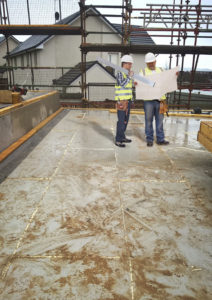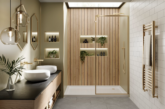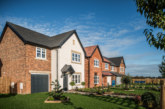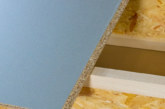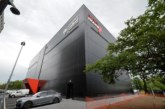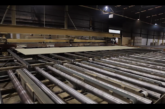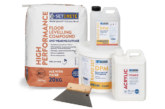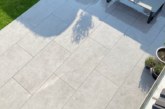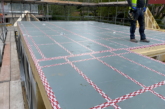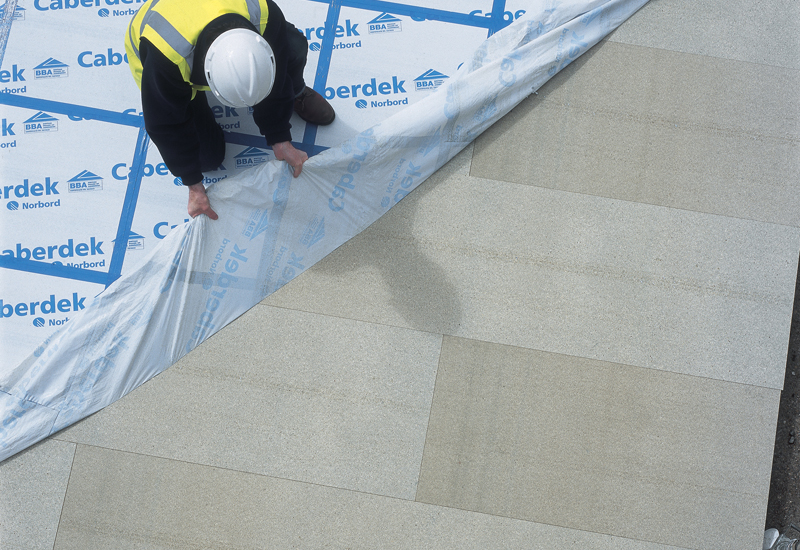
David Connacher, Brand and Communications Manager, Norbord Europe looks at engineered timber solutions and the modern flooring options that can help increase productivity on site.
Despite the continual development of new building materials and designs, the construction of suspended floors in the housing sector is still dominated by one material: wood. Admittedly, modern timber suspended floors are a far cry from the traditional combination of sawn joists and nailed planks, but natural timber’s inherent strength and lightness continues to make this the material of choice for most housebuilders.
Solid timber components long ago ceased to be the norm. Solid joists and planks must be sawn from large and expensive timbers; today’s engineered wood products are manufactured by jointing and bonding smaller cuts.
Engineered solutions
Modern manufacturing not only makes better use of a raw material that was previously unsuitable for structural purposes; it can also result in a high quality and more reliable product. Instead of the traditional 9” sawn softwood joists from the local timber merchants, builders can now choose from a variety of composite structural beams that employ the same web-and-flange configuration as a hot-rolled steel beam.
With flanges of softwood and webs of either oriented-strand board (such as Norbord’s Sterling OSB) or a pressed steel lattice, these beams are as light – or even lighter – than a solid timber beam, and just as strong. Crucially, these engineered products are free of the defects, such as knots, splits and cracks, that occur naturally in solid sawn timbers. And being engineered, as opposed to simply sawn to size, their strength and other physical properties can be accurately ascertained.
Flooring options
When it comes to floor decking, natural wood is generally only employed now for its aesthetic value. Structural integrity is invariably provided by particleboard panels, tongue-and-grooved to provide a solid, continuous floor surface.
Products such as Norbord’s CaberBoard range of flooring systems now dominate the sector, and for good reason. Particleboard products combine structural strength, stability and reliability with low cost and ease of installation. Unlike traditional floorboards, every sheet of CaberBoard flooring is the same as the next because the particleboard from which it is made is, like the modern joist, an engineered product meaning post-installation defects are less likely in a modern floor.
Time is money in the building industry and housebuilders cannot afford to lose time even when the weather is against them. The suspended first floor of a new house is therefore pressed into service as soon as it is installed, initially as the working platform for following trades, before the roof is installed. Floors are therefore often exposed to the elements for days – or even weeks – while workers complete the brick-and block-work, fit windows and erect interior partitioning. In wet weather, the floor can be drenched with rain; and, in winter, that rain can turn to sleet or snow.
Many modern flooring panels are therefore designed to withstand harsh conditions for extended periods without any deterioration. Norbord’s CaberDek, for example, is guaranteed to withstand full exposure to the weather for up to 42 days. This is achieved by selecting moisture resistant, load-bearing (P5) particleboard and sealing the surface with a tough waterproof protective film which is peeled away after completion, revealing a pristine surface.
In the case of Norbord’s toughest flooring product, CaberShieldPlus, the protective surface is bonded permanently to the board on both sides. With CaberDek ultimate protection from the elements is ensured by taping over the joints between adjacent boards with CaberFix tape, a special waterproof tape.
Sustainability credentials
Engineered timber flooring products represent a massive improvement over the solid timber floors of a generation ago. They offer a consistent result in terms of performance and quality, plus much quicker and easier installation to closer tolerances. They also have another increasingly important advantage over traditional solid timber, and that is their environmental sustainability.
Solid timbers are sawn from large-diameter logs – the trunks of mature softwood trees which could be up to 80 years old. Particleboard, however, is made from millions of softwood particles, resin-bonded under heat and pressure. And typically 75% of the wood fibre that goes into particleboard is recycled.
Norbord’s CaberBoard range is made in a factory where the heat used to press the boards is generated from an on-site biomass boiler, fuelled with the low-grade process residues that are unsuitable for turning into board. Hence, waste is massively reduced and carbon emissions are minimised.
The panels used to build suspended floors in today’s houses will represent a minute proportion of the total cost of the building. When you consider that most of them will continue to give good service for decades to come, your floor could prove to be the best investment you never knew you had made.
For more information visit www.norbord.co.uk

